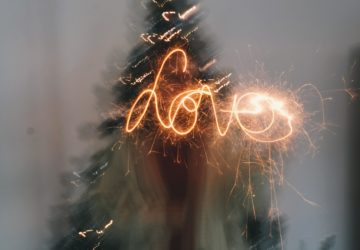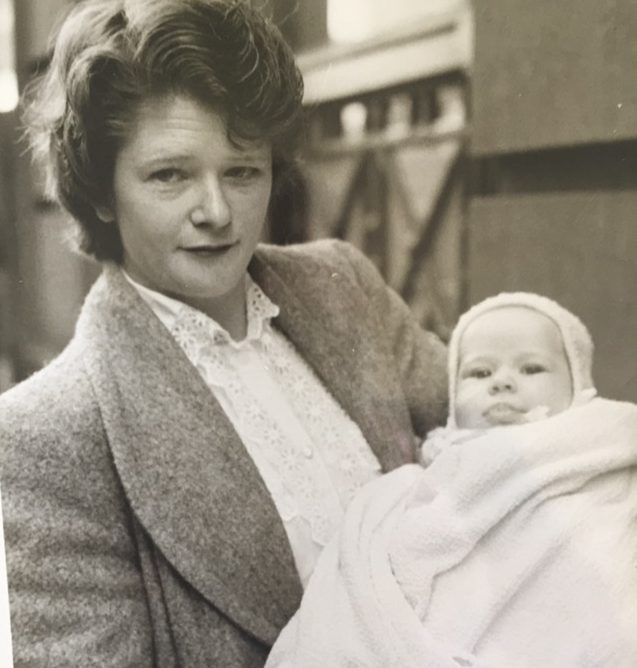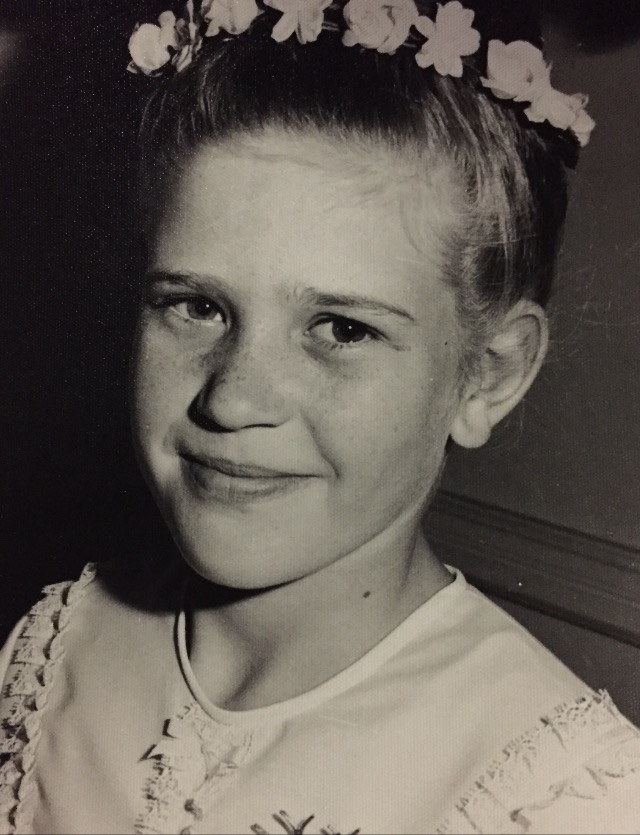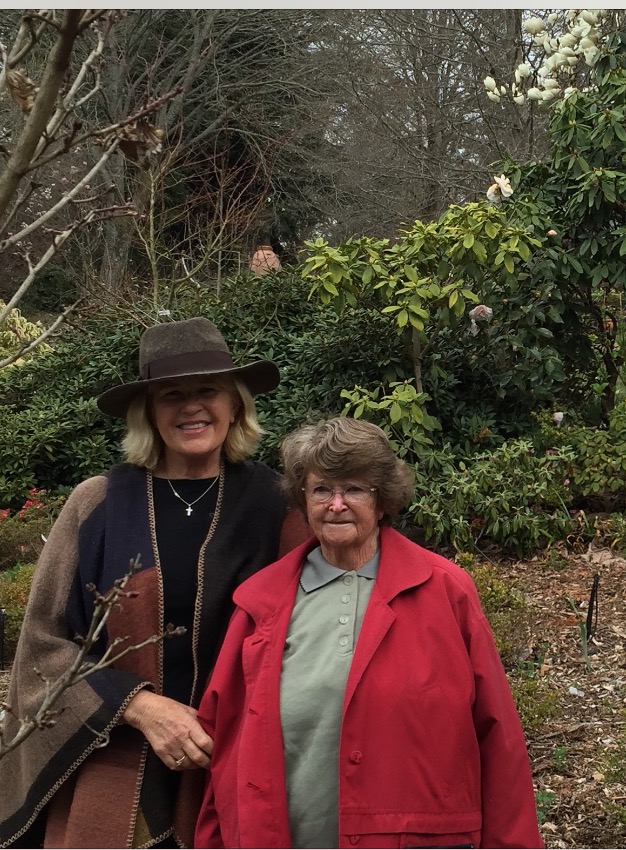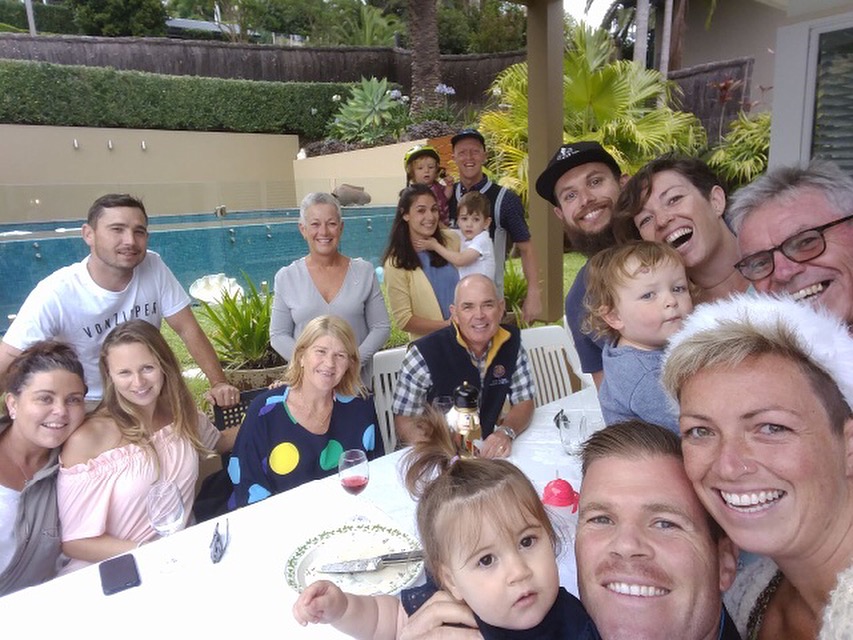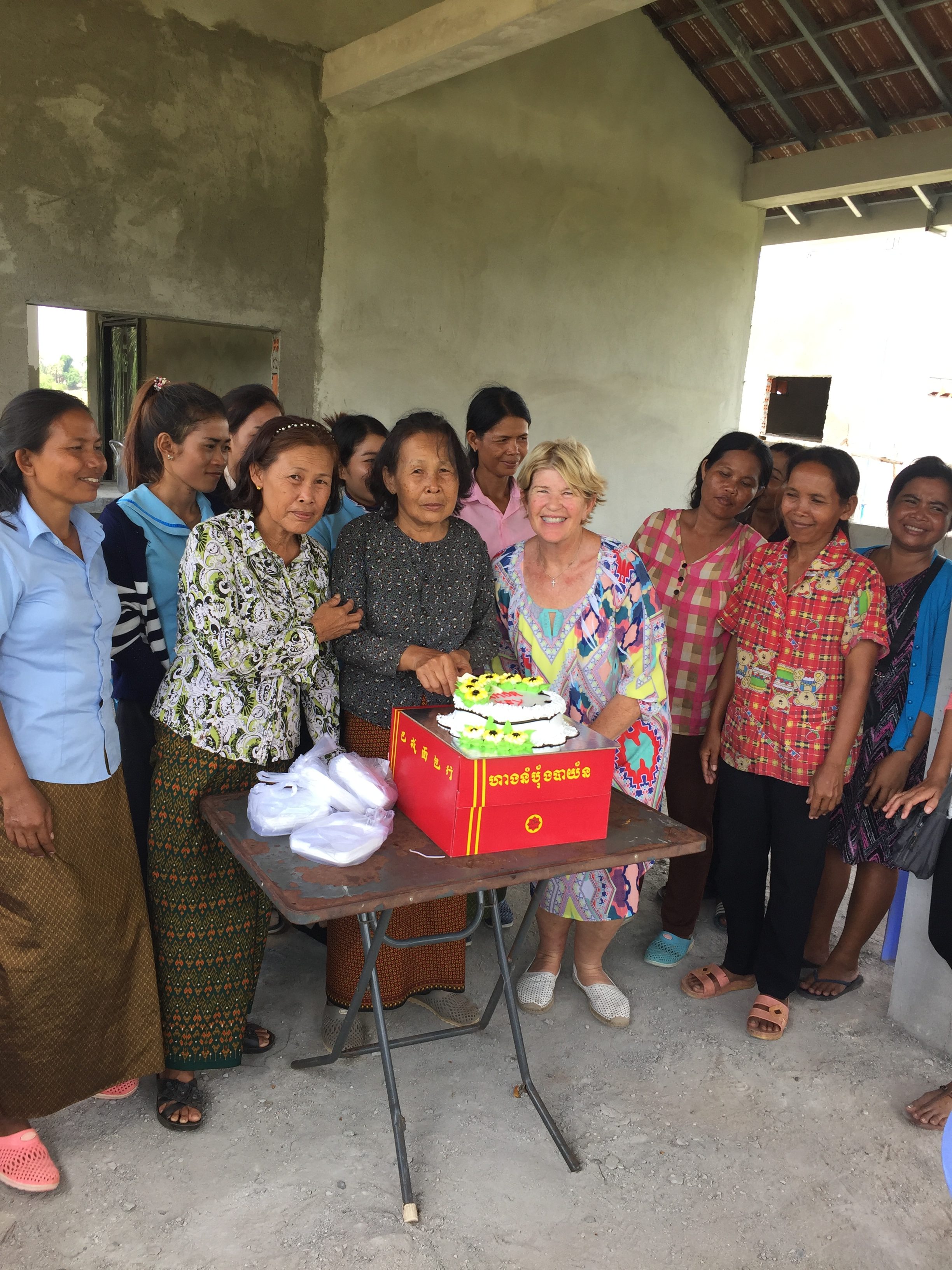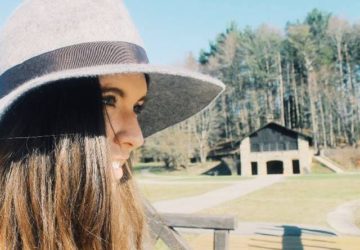Love is the Key – Amanda’s Story
My story really begins before I was born.
My mother was a shy, single 23 year old girl. Raised by a loving mother and father she was the third child in a family of eight children and had led a very sheltered life. Her first boyfriend was the ‘cast off’ boyfriend of her younger sister. He too was 23 but his life had been far less stable. His parents separated when he was three and he was placed in a children’s home. At the age of five he was adopted by a well meaning Christian couple but a sense of rejection and abandonment shadowed his life. He served as a soldier during the Korean War and sustained significant injuries. His recovery was painful. By the time he was discharged he was a very broken, young man.
It was an ill advised and short lived romance. My mother, and the man who I later came to know as my father, broke up before my mother even realised that she was pregnant. I was born in 1956, my arrival darkened by the whispers of shame and scandal. My father totally unaware of the fact that he now had a child. My mother told me on a number of occasions that I ‘should never have been born.’ I don’t think she realised the painful impact her words had on me. Like my father, I too felt the ache of rejection.
My mother and I lived with my grandmother, whom I adored, and her youngest adopted son Charles, who was only four years older than me. My earliest memories of my grandmother’s home are of an abundance of love and security but sadly, this did not last long. My grandfather had died shortly before I was born and my grandmother struggled to make ends meet. When I was three years old she decided to take in boarders to supplement her meagre income. I have very few memories of the early boarders but distinctly remember the day a tall and handsome man appeared at the door. He was the new boarder and before long, Charles and I were calling him ‘Uncle Doug’. He worked at the railway as a driver and the two of us would delight in waving to ‘Uncle Doug’ when he tooted the horn, as his train went past our house.
Unfortunately there was another side to ‘Uncle Doug’ and before long our home became a place of intolerable fear.
‘Uncle Doug’ drank heavily and often arrived home at the end of the day with a ‘skin full’ after many hours in the local hotel yelling abuse and swinging punches. I have a vivid memory of Charles and I witnessing this man, the only ‘father figure’ in my life, standing over my grandmother and beating her senseless. My mother who was a small lady lifted a kitchen stool and swung it down onto his head. Charles and I were hiding behind the kitchen door as we saw blood pouring out of his head wound onto the floor. It was terrifying.
Fear defined the atmosphere of our home. Violent language, name calling and physical abuse were ‘Uncle Doug’s’ stock in trade. He bit us and gave us Chinese burns on our arms. Charles began to lash out. He repeated the ugly words that had been spoken over us and fought back. I spent all my spare time daydreaming of a life away from this scary place. I couldn’t undertsand why my grandmother continuously forgave this man who we believed to be ‘just a boarder’.
When I was four years old my grandmother was diagnosed with a brain aneurysm. For two months Charles, my mother and I would travel by train to the Royal North Shore Hospital where she was recovering from surgery. The surgery was successful but by the time she came home my grandmother was a different woman. The beautiful, vivacious woman around whom my world revolved, became irritable and critical. As a Seventh Day Adventist alcohol had never been part of my grandmother’s life but now she began drinking and gambling too.
Life at home continued to deteriorate. Neither Charles nor I felt wanted or important but we coped with these feelings very differently. I was terribly shy and tried my best to be a good girl and perfectly behaved. Charles responded to the chaos around him by lashing out, he was disruptive and rebellious both at home and school. His behaviour led to regular visits from the police but my grandmother protected and defended ‘Uncle Doug’ rather than Charles, so it was he who bore the brunt of the police’s rebukes. I believe my mother did her best to try and keep the peace and protect us, but her first loyalty was to her mother.
When I was nine years old my mother met a man who was 32 years her senior.
I found him to be brusque and mean spirited but within three months of meeting each other they were married. I never asked her, but I assumed my mother was doing her best to provide a safe and more stable environment for me. We left my grandmother’s house and moved to a farming community with my mother’s new husband. His home was a remote, run down, dirty farmhouse with holes in the walls and window frames. He was an angry man who yelled a lot and used his belt to show me ‘who was in charge’. My fear increased and I began to wet the bed. He responded to this by punishing me and so the cycle of fear and anxiety continued.
By the time I was 12 I was enduring abuse of every kind, at the hands of the man that should have protected me. I had friends at school but we lived too far away for people to visit. My mother’s husband was highly regarded in the community as a Superintendent of the St John’s Ambulance Brigade and a member of the church board, but he was an abusive bully. He told me to never tell anyone about what he did to me as it was ‘our secret and what Father’s are supposed to do!’ I stayed silent. No one knew the nightmare I was living in. School and church were my sanctuary. Every morning I left the house before 7am to walk to the bus stop. The bus trip to school was over an hour long, but I didn’t mind. I felt safe on the bus. I had always attended Scripture classes and soon after moving to the farm I became a regular attendee at the local Mission Church. I attended a Billy Graham Crusade when I was 11 and it was there that I gave my life to God and became a Christian. I loved church and the Sunday school teachers were wonderful to me.
Whenever I was at church I felt loved and safe.
I spent my days dreaming of what a father should be like, and what a real family would look like. I wrote long stories about ‘happy families’ hoping that one day I would experience that for myself. Sadly my home life did not improve and as soon as I finished high school I moved away. I don’t know where my courage came from but I literally packed a bag and left. I moved to the New England area of NSW and became a Jillaroo. I rode stock horses, moved cattle, and also worked in the homestead as a housekeeper. I was only 17 years old.
The farm manager’s mother took me under her wing and often shared with me, about her faith. It was during this time that I really grew in my relationship with God. I immersed myself in the Word and realised that, despite the trauma that I had experienced at the hands of the men in my life, God is the ultimate and perfect Father.
I knew that life on the farm was not the future that I wanted so when I was 18 I enrolled in nurses training at Hornsby hospital. I loved it. I was still a very shy young woman and I was more comfortable at the hospital caring for people than in the outside world. I rarely went out but I did start to make fabulous friends. Some of the girls in my group were Christians and one in particular regularly invited me to her home. Her parents talked a lot about Jesus and how much they loved him. They established an example for me, of a healthy, loving family. When I was 19 I moved into the nurse’s home and was nurtured by some of the senior staff who had been previously been missionaries. For my 21st birthday they presented me with a Bible.
After I completed my nurses training I met the man who would become my husband. Although he was not a Christian he knew that I loved the Lord and accepted that I would be committed to attending, and raising our children, in the church. We were married at Beecroft Presbyterian Church. I continued to attend the church and as our children were born, two boys and a girl, they too became part of the church community.
Despite the challenging circumstances of the early years of my life, I remained very close to my mother right up to her death in 2016. Growing up I had no idea that my mother actually had Asperger’s Syndrome. Looking back, I see that her lack of emotional engagement, awkward social skills and unusual manner were the result of a condition that was barely understood and never acknowledged. She expressed her love and commitment to me through simple actions like offering endless cups of tea, and remembering to turn on the electric blanket for me when I visited. She never spoke of my father and given that my experiences with ‘father figures’ had been mostly negative I did not have any interest in finding out anything more about him.
That all changed when I enrolled in a ‘Prayer Ministry’ course at my church. During the first teaching session, the lecturer explained that we are directed by God to ‘honour our mother and father’. This statement actually made me angry. I had an unusual, and at times challenging, relationship with my mother and had never even met my real father.
I was 54 years old, how was I supposed to honour them now?
A few years earlier a well-meaning relative had given me my father’s name. After much prayer and processing I decided to write him a letter. He replied by inviting me to attend a church service at a Korean Church in Strathfield. Every July this church held a service for Australian soldiers, like my dad, who had served during the Korean War.
I was quite conflicted about whether or not I should go but my daughter encouraged me by saying, ‘Mum everyone deserves to know who their father is!’ I was so nervous as I walked in to the church. There were many soldiers there, old men wearing suit jackets with their medals proudly on display. A beautiful Korean Pastor’s wife asked me if I had someone to sit with? I quickly told her that I was meeting my father, whom I had never seen before and then said, ‘I don’t even know which one is him’.
She found him. He was sitting at the front of the Church, his head bowed. I watched as she asked him his name and saw him nod ‘yes’. She then returned to get me and led me down the aisle to sit next to my father. As he looked at me he began to cry. My mother had always been devoid of emotion when she communicated, no tears of sadness or joy, or expressions of excitement or laughter. The significance of this emotional moment with my father was not lost on me. As we stood to sing the first hymn my father took my hand, his voice was rich and strong and I could hardly believe that after more than 50 years I was finally standing next to him.
That marked the beginning of our friendship. We still talk every week and meet up for lunch every other month, he insists on paying. He suffers terribly from Post-Traumatic Stress Disorder (PTSD) from the war, but he is a good, kind and gentle man who adores me. Unbeknown to me he had been informed of my existence when I was nine months old sent me birthday and Christmas cards every year while I was growing up, but my mother had destroyed them. I recall getting an anonymous bunch of roses on my 21st birthday, turns out that they too were from him. Shortly after our first meeting I had the privilege of standing with my father as he gave his heart to Jesus at a Hillsong ‘Christmas Spectacular’ presentation.
God is the ultimate restorer.
When I look back on my life I can now see how the love of God was always upholding me. No matter how challenging and traumatic the circumstances of my life were at times, I know that it was God’s love and the prayers of others, some of whom I may never meet this side of heaven, that protected and sustained me. I am now in the midst of a new season of life. Our children are all grown up and married. I now have, in many respects the family that I daydreamed about as a child. My husband is a generous man and has provided an amazing life for our children and me. Nothing gives me more pleasure than being together with our children, their spouses, and our grandchildren.
As I have experienced restoration and breakthrough in my own life I have become increasingly aware of the opportunity that I have to share that message of hope with others. A few years ago I was invited to travel to Cambodia to help establish a school for some of the most disadvantaged and marginalised children in that nation. This was the beginning of what has become an ongoing commitment to bring a message of life, love and restoration to the people of this beautiful nation. As I opened my heart and hands to the children, women and families of Cambodia I realised how powerfully my own childhood had prepared me for this new adventure.
The ‘Amor Key’ program was born out of my desire to see the women of Cambodia experience the truth that they are known, loved, and accepted by God. Through teaching and practical support I am able to play a small part in bringing dignity and value to their lives. The name ‘Amor’ means love and also happens to be my birth name. The word ‘Key’ is significant because I truly believe that love is the key to everything. This name also pays homage to my own mother who often wore a pin with keys on it, on her cardigan. What a privilege it is, to share the restoring love of God that I have experienced, with others.
The next chapter of my life is still unfolding but I am confident that God’s love has gone before me and it His love that will lead me.
For I know the plans I have for you,” says the Lord.
“They are plans for good and not for disaster, to give you a future and a hope.
Jeremiah 29:11 (NLT)

